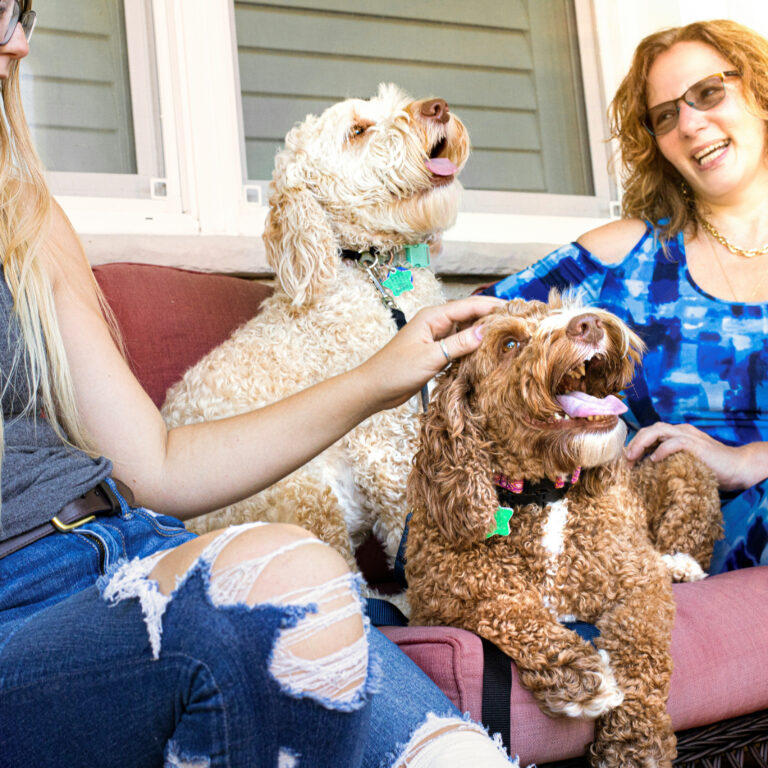“Boosting Your Dog’s Smile: A Comprehensive Guide to Optimal Dental Care”
“Boosting Your Dog’s Smile: A Comprehensive Guide to Optimal Dental Care”
The article highlights the significance of dental care for dogs, emphasizing how it impacts their overall well-being and quality of life, and provides insights on common dental problems, preventive measures, selecting the right dental care products, recognizing early signs of dental issues, professional dental cleanings, and training techniques for optimal dental health.

Introduction to the Significance of Dental Care for Dogs
Dental care for dogs transcends mere aesthetics or the elimination of bad breath; it is a critical component of their overall health management. Just like in humans, poor oral hygiene in dogs can result in a myriad of health complications, ranging from painful infections and difficulty in eating to more severe conditions like organ damage due to the spread of bacteria from the mouth to the rest of the body.
The importance of dental care in dogs cannot be overstated, as it directly influences not only their physical health but also their behavior and quality of life. When a dog suffers from dental pain, it may exhibit changes in behavior, such as increased irritability or a decreased desire to play, which are often mistakenly attributed to aging or changes in mood rather than the underlying dental issues causing discomfort.
Moreover, the onset of dental problems in dogs is alarmingly common, with a significant number of canines showing signs of dental disease by the age of three. This highlights the necessity for pet owners to adopt a proactive approach towards dental care, including regular brushing, dental check-ups, and professional cleanings.
Understanding the crucial link between a dog’s dental health and its overall well-being empowers owners to take the necessary steps to prevent dental diseases. Such preventative measures not only safeguard the dog’s health but also contribute to avoiding potentially costly veterinary procedures in the future. By maintaining good oral hygiene practices, owners can ensure that their dogs enjoy a higher quality of life, free from the pain and complications associated with dental issues.

Understanding the Common Dental Problems in Dogs
Dental problems in dogs extend far beyond the occasional bad breath; they can lead to serious health implications that could affect your furry friend’s overall well-being. The spectrum of dental issues in dogs ranges from mild plaque buildup to severe periodontal disease, which can involve the gums, teeth, and even the jawbone. Periodontal disease, in particular, is a common condition that arises from the accumulation of plaque and tartar on the teeth.
This condition can cause significant discomfort, leading to symptoms such as inflammation, bleeding gums, and in advanced cases, tooth loss. Unfortunately, such dental problems are not just a matter of oral health; they can also impact a dog’s ability to enjoy daily activities like eating, playing, and interacting with family members, thereby diminishing their quality of life.
Moreover, periodontal disease doesn’t only affect the parts of the teeth and gums that are visible; it can also affect the underlying structures of the mouth, including the jawbone and the ligaments that support the teeth. This can lead to further complications such as jaw fractures and chronic pain, emphasizing the importance of early detection and treatment. Regular dental check-ups and cleanings can play a crucial role in preventing these conditions, making it imperative for dog owners to prioritize their pets’ dental health. By understanding the common dental problems that dogs face and taking proactive steps to prevent them, owners can help ensure their pets lead happier, healthier lives.
The Importance of Preventive Measures in Dog Dental Care
Preventive dental care encompasses a range of practices aimed at maintaining the oral health of dogs, thereby averting the onset of dental diseases that can lead to more severe health complications. Implementing a routine of regular brushing with canine-specific toothpaste can drastically minimize the buildup of plaque and tartar, two primary culprits behind periodontal disease.
The use of dental chews and toys, designed to promote chewing and saliva production, also plays a significant role in scraping away plaque buildup, thereby supporting a healthy oral environment. These simple yet effective home care practices, when combined with regular dental check-ups and professional cleanings by a veterinarian, form a comprehensive dental care regime that can prevent the progression of dental diseases.
Moreover, the significance of preventive dental care extends beyond oral health, influencing the overall well-being of dogs. Periodontal disease, if left untreated, can lead to tooth loss, severe pain, and infections that can spread from the oral cavity to the bloodstream, potentially damaging vital organs such as the heart, liver, and kidneys.
Early intervention and consistent preventive care can thwart these issues, ensuring that dogs not only maintain a full set of healthy teeth but also reduce their risk of systemic health problems associated with poor oral hygiene. Engaging in regular preventive dental care practices is a testament to the commitment of pet owners to the health and happiness of their canine companions, underscoring the crucial role of oral health in the holistic well-being of dogs.
Selecting the Right Dental Care Products for Dogs
Choosing the right dental care products for your canine companion is essential for ensuring their dental health is maintained at an optimal level. The array of products available can be overwhelming, ranging from specially formulated toothpaste to dental chews and toys designed to reduce plaque and tartar buildup. It’s imperative to understand that dogs have varied needs depending on their breed, age, and any pre-existing dental conditions they might have.
For instance, smaller breeds prone to dental issues may benefit from softer dental chews that are easier on their delicate teeth and gums, while larger breeds might require more durable toys that withstand aggressive chewing. Quality matters greatly when it comes to these products. High-quality dental care items, such as those endorsed by veterinary associations or those that carry the Veterinary Oral Health Council seal of approval, have been tested for their efficacy and safety, ensuring they contribute positively to your dog’s oral health routine.
Moreover, it’s not just about selecting the right type of product but also ensuring you’re choosing the right formulation and size for your dog. Toothpaste formulated for dogs, for example, comes in flavors that are more appealing to them, such as poultry or peanut butter, which can make the brushing experience more enjoyable and less stressful. Similarly, dental treats and toys come in various sizes to accommodate the different sizes of dogs’ mouths, ensuring they are effective and safe for your pet to use.
Given the complexities and specificities involved in choosing the most suitable dental care products, consultation with a veterinarian cannot be overstated. A professional can provide personalized advice based on a comprehensive evaluation of your dog’s health, dental condition, and specific needs.
This guidance can be invaluable in navigating the vast market of dental care products and selecting those that will most effectively contribute to your dog’s dental health and overall well-being. For expert guidance on maintaining your dog’s dental health and selecting the right products, explore the training programs offered by Dayton Off Leash K9 Dog Training at https://daytonohiooffleashdogtrainers.com/.
Recognizing Early Signs of Dental Issues in Dogs
Recognizing the early signs of dental issues in dogs is crucial for their health and well-being. Owners should be vigilant for symptoms such as excessive drooling, which could indicate pain or discomfort in the mouth, and bleeding gums, a clear sign of gingivitis or other gum diseases. Loose teeth are not only a sign of potential dental disease but can also cause significant discomfort and problems with eating.
Changes in eating habits, such as reluctance to eat hard food or chew toys, can also suggest dental issues. These physical signs are often accompanied by behavioral changes; a dog that is usually playful might become irritable or less interested in play, indicating discomfort or pain. It’s essential for dog owners to regularly check their dog’s mouth for these signs and consult a veterinarian if they have concerns. This proactive approach can prevent the progression of dental diseases and help maintain the dog’s overall health.
Additionally, bad breath in dogs should not be ignored as it is often a symptom of underlying dental problems, including periodontal disease. While some may dismiss it as just a part of being a dog, persistently foul breath can be indicative of bacteria buildup or infection in the mouth. Furthermore, if a dog suddenly drops food from its mouth while eating, it may be experiencing dental pain, leading to difficulties in properly chewing food.
These early warnings are the body’s way of signaling that something is amiss, and addressing them promptly can spare the dog from further pain and complications. Establishing a routine of dental care and regular check-ups with a veterinarian can significantly contribute to the early detection and treatment of dental issues, ensuring a happier and healthier life for your canine companion.
For comprehensive guidance on maintaining your dog’s dental health and to learn effective techniques for inspecting your dog’s mouth, consider exploring the training programs offered by Dayton Off Leash K9 Dog Training. Visit https://daytonohiooffleashdogtrainers.com/ for more details and to ensure your furry friend’s well-being through proactive dental care.

Professional Dental Cleanings and Procedures for Dogs
Professional dental cleanings and procedures represent a cornerstone of comprehensive dental care for dogs, transcending the limitations of daily brushing and at-home maintenance. These procedures, often encompassing scaling to remove tartar and plaque from the tooth surfaces, polishing to smooth the enamel reducing future plaque buildup, and potentially extractions for severely damaged teeth, target the root causes of dental disease.
Such interventions are pivotal, not only for preserving the structural integrity of the teeth and gums but also for safeguarding the dog’s overall health. The application of anesthesia during these procedures is a critical step, ensuring the dog remains calm, comfortable, and pain-free, thereby facilitating a thorough cleaning and any necessary dental work. This approach minimizes stress for both the pet and the veterinary staff, enhancing the safety and efficacy of the treatment.
The frequency and necessity of professional dental cleanings vary based on individual factors such as the dog’s age, breed, and the current state of its dental health. However, the consensus among veterinary professionals underscores the importance of these cleanings as a preventive measure against the advancement of periodontal disease, which, if left unchecked, can lead to more severe health complications.
Regular professional assessments and cleanings allow for the early detection and treatment of potential issues, maintaining the dog’s oral hygiene at an optimal level and contributing to their overall well-being. For dog owners seeking to ensure their pets receive the best possible dental care, consulting with a veterinarian to establish a regular dental care routine, including professional cleanings, is indispensable.

Training Your Dog for Optimal Dental Health
Teaching your furry friend to accept and even look forward to their dental care routine is a crucial step towards ensuring their oral health. This process, however, can be daunting for many pet owners, as dogs might initially resist having their teeth brushed or inspected.
Here is where Dayton Off Leash K9 Dog Training comes into play, offering specialized training programs to ease dogs into dental care habits. By employing gentle, effective techniques, they help create a positive environment around dental hygiene practices. This not only reduces stress for both dogs and their owners but also encourages dogs to become active participants in their own dental health maintenance.
Moreover, a well-trained dog that responds positively to dental care routines can significantly benefit from early detection and prevention of oral issues. Regular brushing and inspections become less of a chore and more of a bonding activity, enhancing the overall well-being of the pet.
Dayton Off Leash K9 Dog Training’s approach focuses on patience, positive reinforcement, and gradual acclimation to dental care tools and procedures, ensuring that your dog associates these activities with positive experiences. For dog owners seeking to establish or improve their pet’s dental care routine, exploring the training options available through Dayton Off Leash K9 Dog Training could be the key to unlocking stress-free and effective oral hygiene practices. For more information on how to get started, visit their website at https://daytonohiooffleashdogtrainers.com/ and ensure your dog’s optimal dental health through expert training.
Conclusion: Enhancing Your Dog’s Well-Being through Dental Care
Understanding and implementing proper dental care for your dog is a profound expression of love and responsibility as a pet owner. It’s not merely about avoiding the unpleasantness of bad breath; it’s deeply intertwined with your dog’s overall health, affecting everything from their comfort while eating to their systemic health and even their behavior. Dental diseases can lead to severe pain, making your dog irritable or lethargic, and can even cause significant organ damage if bacteria from the mouth enter the bloodstream. By integrating regular dental check-ups, employing suitable dental care products, and maintaining a routine of brushing your dog’s teeth, you are laying the groundwork for a happier, healthier life for your pet.
Moreover, incorporating dental care into your dog’s routine doesn’t have to be a struggle. With the expert training programs offered by Dayton Off Leash K9 Dog Training, you can learn effective, stress-free methods to care for your dog’s dental health. Their training goes beyond obedience and behavior; it equips you with the knowledge and techniques to maintain your dog’s oral hygiene in a way that’s comfortable and reassuring for them.
This comprehensive approach ensures that your efforts in enhancing your dog’s dental health are as rewarding and effective as possible. To embark on this journey towards ensuring your dog’s optimal dental health and overall well-being, visit https://daytonohiooffleashdogtrainers.com/ for more details and to explore their training programs.
Would you like a certified trainer to contact you?








